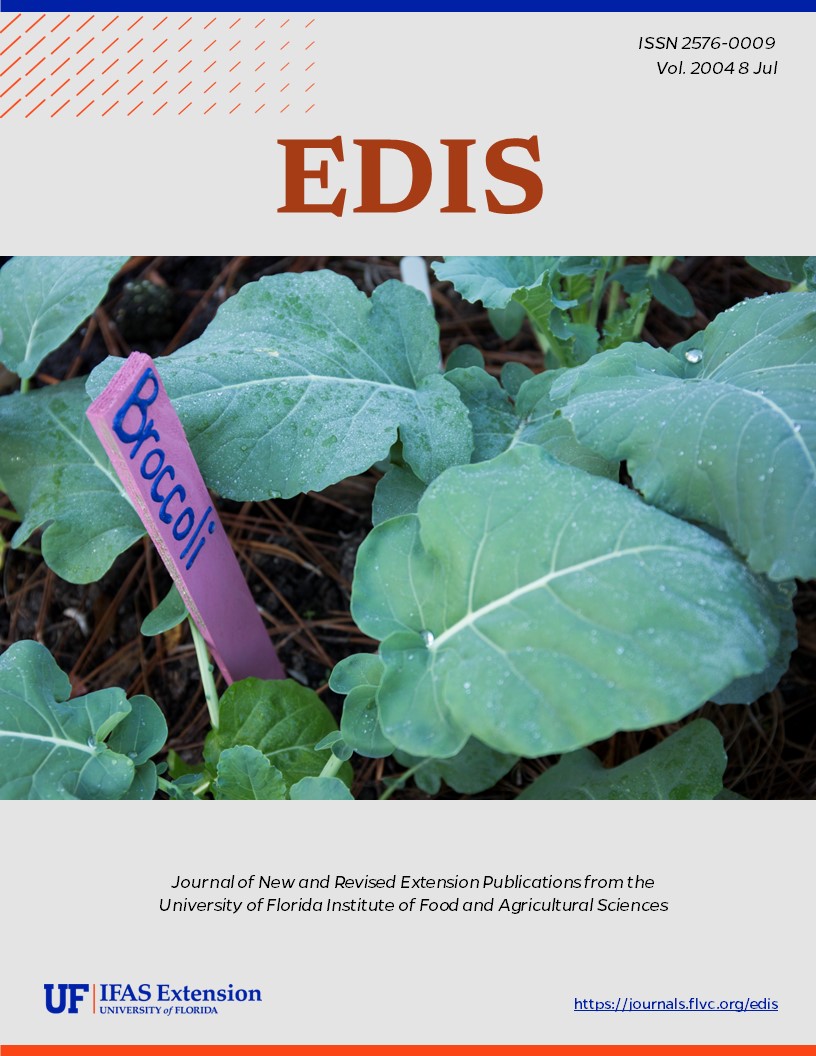Resumen
In the context of water management for irrigation, measuring and monitoring soil water status is an essential component of best management practices (BMPs) to improve the sustainability of agriculture. This document is Bulletin 343, one of a series from the Department of Agricultrural and Biological Engineering, Florida Cooperative Extension Service, Institute of Food and Agricultural Sciences, University of Florida. First publihsed: July 2004. This document replaces in part CIR 532.
BUL343/AE266: Field Devices For Monitoring Soil Water Content (ufl.edu)
Citas
Alvarez-Benedí, J. and R. Muñoz-Carpena (eds). 2004. Soil - Water - Solute processes in environmental systems. Monitoring, characterization and modeling. CRC Press LLC: Boca Raton. (in press). https://doi.org/10.1201/9781420032086
Campbell, G.S. and W.H. Gardner, 1971. Psychrometric measurement of soil water potential: temperature and bulk density effects. Soil Sci. Soc. Am. Proc. 35: 8-12. https://doi.org/10.2136/sssaj1971.03615995003500010011x
Cape, J. 1997. A value selection method for choosing between alternative soil moisture sensors. Project No. AIT2, Land and Water Resources Research and Development Corporation Report.
Charlesworth, P. 2000. Soil water monitoring. National Program for Irrigation Research and Development. CSIRO Land and Water. 101 p.
Dane, J.H. and G.C. Topp. 2002. The soil solution phase. In J.H. Dane and G.C. Topp (eds), Methods of Soil Analysis, Part 4: Physical Methods, Chapter 3. Soil Science Society of America, Inc., Madison, WI. https://doi.org/10.2136/sssabookser5.4
Davis, J.L. and A.P. Annan. 2002. Ground penetrating radar to measure soil water content. Pages 446-463. In: J.H. Dane and G.C. Topp (eds) Methods of Soil Analysis, Part 4: Physical Methods. Soil Science Society of America, Inc., Madison, WI.
Gaskin, G.D. and J.D. Miller, 1996. Measurement of soil water content using simplified impedance measuring technique. Journal of Agricultural Engineering Research 63: 153-160. https://doi.org/10.1006/jaer.1996.0017
Muñoz-Carpena, R., Y. Li and T. Olczyk. 2002. Alternatives for low cost soil moisture monitoring devices for vegetable production in the south Miami-Dade County agricultural area. Fact Sheet ABE 333, Florida Cooperative Extension Service, Institute of Food and Agricultural Sciences, University of Florida, 6 p.
Muñoz-Carpena, R., H. H. Bryan, W. Klassen, and M.D. Dukes. 2003. Automatic Soil Moisture-Based Drip Irrigation for Improving Tomato Production. Proceedings of the Florida State Horticulatural Society 116:80-85.
Nakashima, M., M. Inoue, K. Sawada and C. Nicholl. 1998. Measurement of soil water content by amplitude domain reflectometry (ADR) method and its calibrations. Chikasui Gakkaishi (Bulletin of the Japanese Association of Groundwater Hydrology) 40: 509-519. https://doi.org/10.5917/jagh1987.40.509
Robinson, D.A., C.M.K. Gardner and J.D. Cooper. 1999. Measurement of relative permittivity in sandy soils using TDR, Capacitance and Theta Probe: comparison, including the effect of bulk soil electrical conductivity. Journal of Hydrology 223: 198-211. https://doi.org/10.1016/S0022-1694(99)00121-3
Topp, G.C., Davis, J.L. and Annan, A.P. 1980. Electromagnetic determination of soil water content: measurements in coaxial transmission lines. Water Resources Research 16, 574-582. https://doi.org/10.1029/WR016i003p00574
Wijaya, K., T. Nishimura and K. Makoto. 2002. Estimation of bulk density of soil by using amplitude domain reflectometry (ADR) probe. 17th WCSS. Thailand. Paper no. 385.
Yoder, R.E., D.L. Johnson, J.B. Wilkerson and D.C. Yoder. 1998. Soil water sensor performance. Applied Engineering in Agriculture 14(2): 121-133. https://doi.org/10.13031/2013.19373
Unless otherwise specified, articles published in the EDIS journal after January 1, 2024 are licensed under a Creative Commons Attribution-NonCommercial-NoDerivs 4.0 International (CC BY-NC-ND 4.0) license.

